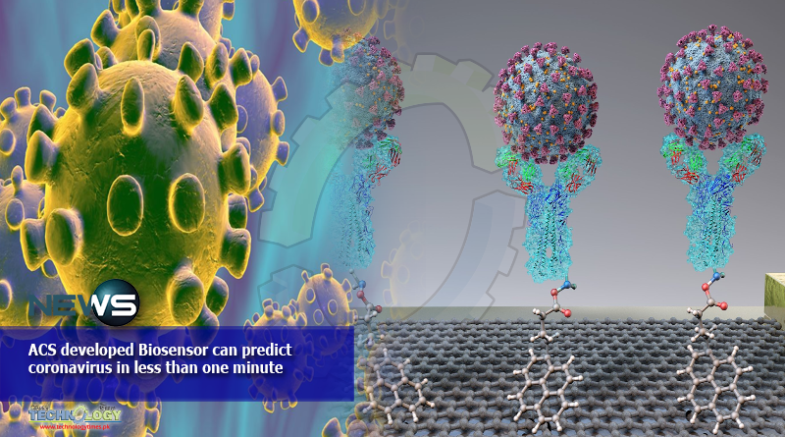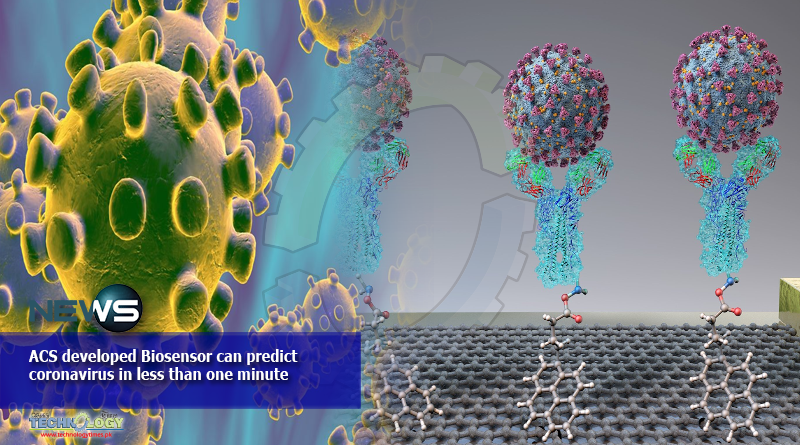American Chemical Society (ACS) Nano has developed a field-effect transistor-based biosensor which can be major breakthrough in the diagnosis of coronavirus as it can detect SARS-CoV-2, from nasopharyngeal swabs in under one minute

Field-effect transistor-based biosensor that can detect SARS-CoV-2 in nasopharyngeal swabs from patients with COVID-19, in time which is many times shorter than other techniques.
Currently, most diagnostic tests for COVID-19 rely on a technique called real-time reverse transcription-polymerase chain reaction (RT-PCR), which amplifies SARS-CoV-2 RNA from patient swabs so that tiny amounts of the virus can be detected. However, the method takes at least 3 hours, including a step to prepare the viral RNA for analysis.
Edmond Changkyun Park, Seung Il Kim, and colleagues wanted to develop a faster diagnostic test that could analyze patient samples directly from a tube of buffer containing the swabs, without any sample preparation steps.
The team-based their test on a field-effect transistor a sheet of graphene with high electronic conductivity. The researchers attached antibodies against the SARS-CoV-2 spike protein to the graphene. When they added either purified spike protein or cultured SARS-CoV-2 virus to the sensor, binding to the antibody caused a change in the electrical current.
Next, the team tested the technique on nasopharyngeal swabs collected from patients with COVID-19 or healthy controls. Without any sample preparation, the sensor could discriminate between samples from sick and healthy patients.
The new test was about 2-4 times less sensitive than RT-PCR, but different materials could be explored to improve the signal-to-noise ratio, the researchers say. American chemical society us further working won’t as well.
It is major breakthrough in medical science.
